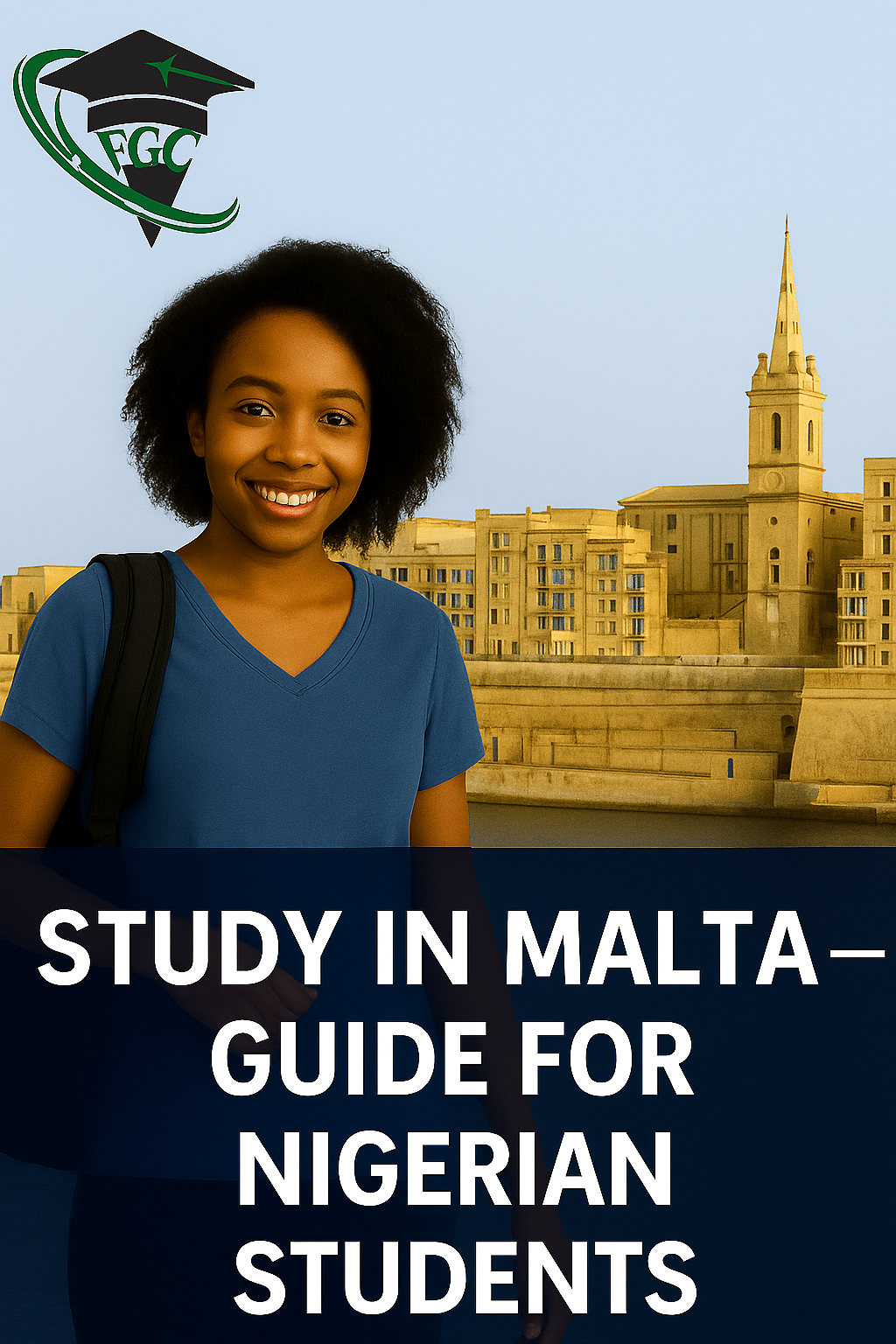🇲🇹 Why Nigerian Students Are Choosing Malta for Study Abroad
Malta is fast becoming a preferred study destination for Nigerian students, thanks to its English-speaking environment, affordable tuition, EU-accredited degrees, and safe, culturally rich lifestyle.
If you’re considering studying abroad, Malta offers quality education and a clear pathway to global opportunities.
🎓 Why Study in Malta?
🌍 English Language Advantage – All courses are taught in English.
🎓 Recognized Qualifications – Degrees are aligned with the Bologna Process and recognized across Europe and beyond.
💶 Affordable Tuition & Living Costs – Compared to other EU countries, Malta offers cost-effective education.
🏖 Quality of Life – Malta is safe, sunny year-round, and has a welcoming atmosphere for international students.
🌐 Gateway to Europe – Studying in Malta gives you access to internship and job opportunities across the EU.
📚 Popular Courses for International Students
Business & Management
Information Technology & Computer Science
Tourism & Hospitality
Health Sciences & Nursing
Maritime Studies
Artificial Intelligence & Blockchain
📝 Admission Requirements
To apply to a Maltese institution, you’ll typically need:
WAEC/NECO result (minimum of 5 credits including English and Math)
International Passport
Statement of Purpose
Academic Transcripts
Proof of English Proficiency (if required by the institution)
Reference Letters (optional but recommended)
🛂 Visa Application Process
Apply and Get Accepted
Choose your course and institution. Receive an official offer letter.
Pay Tuition Deposit
Most schools require a partial payment to secure your admission.
Prepare Visa Documents
Valid Passport
Admission Letter
Tuition Payment Receipt
Proof of Accommodation in Malta
Medical Insurance
Bank Statement or Sponsor Letter (proof of sufficient funds)
Police Clearance
Submit Your Student Visa Application
File your application at the nearest Maltese consulate or embassy.
Travel and Register
Once your visa is approved, travel to Malta and register with the local authorities as a resident student.
💼 Can You Work While Studying?
Yes! Students in Malta are allowed to work up to 20 hours per week during their studies. This helps support living expenses and provides valuable work experience.
🎯 Post-Study Opportunities
After graduation, Malta offers pathways to work permits and residence, especially in high-demand sectors like:
Tech
Healthcare
Finance
🇲🇹 Need Help with Your Study Application to Malta?
We assist with:
✅ Course selection
✅ Admission processing
✅ Visa application
✅ Travel & accommodation guidance
📞 Call or WhatsApp us: +234 7047818192
📍 Available in person, by phone, or online





